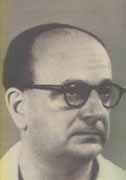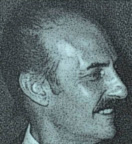![]() Aug. 24, 1978 By Charles Goren y Omar Sharif
Aug. 24, 1978 By Charles Goren y Omar Sharif
East-West Vulnerable, Dealer: North
Lead: ![]() 3
3

«Life imitates art.» wrote Oscar Wilde. In 1965, a hand was widely published and was credited to Giorgio Belladonna, regarded by many as the world’s best player. He denied having made the play, and subsequent research proved the deal to be a composition by Paul Lukacs.
‘This hand, from the Open Paris event in the Fifth World Bridge Olympiad, is almost a carbon copy of that problem and earned for the declarer, Joe Amsbury of England, an entry in the Bols Brilliancy Prize competition.

The contract of four spades was a popular one. Looking at all four hands, it would seem that the contract is doomed — except for the club ace, every important key card is badly placed. If declarer discards two hearts on the diamonds, he must still lose two hearts, the ace of clubs and the king of spades.
Amsbury chose to take advantage of the favorable opening lead by discarding his two clubs on the high diamonds. Even now it seems that he will have to lose three hearts and a trump, for if he comes to his hand with a club ruff to lead a heart to the king, East can win the ace and shift to a trump. When West wins the second heart he can remove dummy’s last trump and the defenders must score another heart trick.
Declarer’s solution was elegant. After taking dummy’s high diamonds, he ran the nine of hearts! West won the trick cheaply with the ten, but the contract could no longer be defeated.
West found the best defense — a trump shift. Declarer won the ten and led a heart to the king and ace, but East did not have a second trump to return. His club return was ruffed by declarer, and a heart ruff felled the queen and set up the jack for the game going trick. Declarer lost only two heart tricks and a trump.
